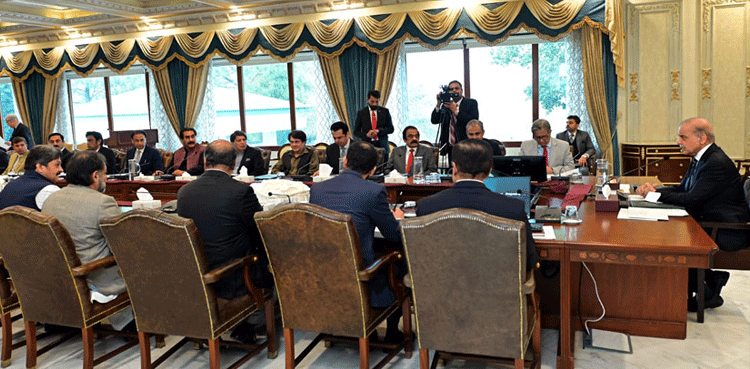ISLAMABAD: Prime Minister (PM) Shehbaz Sharif has formed a steering committee to oversee the implementation of the National Tariff Policy to enhance Pakistan’s export potential and revitalizing impacted industries, ARY News reported.
The Ministry of Commerce issued a notification confirming the committee’s formation, with Federal Minister for Finance Muhammad Aurangzeb appointed as its chairman.
The committee comprises the Ministers for Commerce, Petroleum, and Food Security, alongside the Minister of State for Railways, the Special Secretary of the Prime Minister’s Office, and the Secretary for Industries and Production. Dr. Manzoor Ahmad, Rubina Athar, and Aijaz Nabi are also named members, with the Secretary of Commerce designated as the committee’s secretary. The Ministry of Commerce will provide secretarial support to ensure smooth operations.
The committee is tasked with proposing measures to boost exports through the tariff policy, reviewing its effects on various industries, and recommending strategies to rehabilitate sectors facing challenges due to tariff structures.
The development came after Prime Minister Shehbaz Sharif unveiled major tariff reforms, announcing that customs duty would be capped at a maximum of 15% and that additional customs and regulatory duties would be phased out in the next four to five years.
Also read: PM Shehbaz okays five-year tariff reform plan to cut duties
The prime minister, who chaired a meeting on National Tariff Policy, took this historic step by approving a gradual but significant reduction in import tariffs.
“The move is being considered a major milestone toward economic improvement that will enable export-led growth. This decision is expected not only to help control unemployment but also to keep inflation in check. Besides, it will also encourage international investment, help create new job opportunities,” according to a PM Office press release.
The prime minister directed that Additional Customs Duty (currently ranging from 2% to 7%) and Regulatory Duty (currently varying from 5% to 90%) be eliminated over the next four to five years.
Similarly, the Customs Duty will be capped at a maximum of 15% as currently, for some items, the rate exceeds even 100%. The number of duty slabs has also been reduced to four to ease legal complexities related to imports and provide a level playing field to various industries.


Leave a Comment